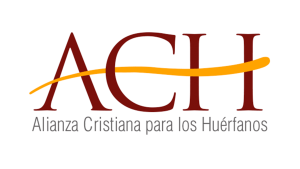The Alianza Cristiana para los Huérfanos (Christian Alliance for Orphans) came to Guatemala in 2013 when a group of leaders from different organizations come together to organize the first summit that would go beyond ministries and denominations to form an alliance with a stronger and united voice in favor of vulnerable children. In 2015, after holding the second summit, the Alianza Cristiana para los Huérfanos (ACH) became a legally established organization. ACH has grown within the ecclesiastical and protection system, being a voice in favor of the most vulnerable in the country and serving as a bridge for churches, ministries, organizations, government entities and families throughout Latin America.
ACH equips and empowers the local church to prevent family separation and attend to those children and families to find a permanent solution. ACH works hand in hand with the Christian church and public and private institutions to:
- Challenge them to unite in the care of orphaned, vulnerable and at-risk children and adolescents in the country
- Equip them so that they can become involved in the care of children and adolescents in crisis and thus provide them with the opportunity to develop comprehensively.
- Connect them with organizations, ministries or institutions in charge of the care and protection of children in crisis.
ACH works to sensitize the church and everyone on the subject of prevention, protection, foster care, mentoring, adoption and family reintegration so that each orphaned, vulnerable or at-risk child and adolescent is cared for individually and comprehensively so that they can reintegrate into society, being an agent of change and impact leader in their environment.
Where they operate
Contact this organization about:
Organization Size
Headquarters Location
Guatemala
Organization Type
Main Areas of Work
Residential Care Service Transition Support
Transition supports they have offered, or plan to offer, include:
- Introducing the importance of family care and reintegration to leaders in the organization
- Strategy and planning for the transition
- Donor and board engagement
- Community awareness raising and engagement
- Partnerships
- Government engagement and linking to systems reforms
- Social work or case management training or support
- Staffing adjustments or training
- Use of buildings and other assets
- Developing new programs, including:
- General coaching or consultation
- Onsite training
- Online training
- Onsite visits/meetings
- Phone calls/video conference
- Provision of standards and written guidance or tools for transitioning
- Connecting with others or building a network
ACH has strong relationships with many different residential institutions and has been providing trainings and learning opportunities over the past few years to slowly bring about changes in their programs and focus. At the same time, we try to connect them with other organizations that have been through similar transitions and provide quality tools and materials to take practical steps toward change. In October 2019 at our annual Summit, we facilitated the first Simulation Lab in Spanish for 30 leaders from Guatemala, Chile, Peru, Dominican Republic and Honduras.
Alianza Cristiana para los Huerfanos plans to support transitioning in Guatemala (possibly Peru, Mexico and Chile). ACH usually works with those organizations that are connected to them through their trainings and resources (podcast, etc.) and are contacted by them. ACH may charge for services.
Corazones Fertiles
Online support group for adoptive and foster families
Grupo 139
Online support group for adult adoptees
Religión Pura
Podcast targeted at those involved or interested in orphans and vulnerable children (OVC) work
Cumbre ACH
International summit for OVC care workers and families
We asked this organization to tell us a little more about their learning and knowledge sharing practices. Here is what they said
We are most proud of our focus on collaboration and connecting families to services and organizations across Latin America. It has been impressive to see how the pandemic of 2020 has extended our reach to most Latin American countries and see new organizations and movements rising up.
Our greatest opportunities for learning have come from the support groups we facilitate where we are constantly reminded and informed of the most pressing needs of families. It is essential for us to know how to move forward, what training opportunities to invest in to best meet the actual needs of the families we serve.
-Keep connected to the real needs of the people
-Don’t force growth but allow your content and relationships to allow the growth to happen
We have quarterly meetings to evaluate the execution of the strategic plan and constantly propose new ideas and modifications based on what we are learning from the families and kids.
We maintain strong relationships with organizations that we feel comfortable supporting and promoting. We are constantly investigating and vetting organizations that come into contact with us to make sure that their values, principles and work lines up with core nonnegotiable values.

